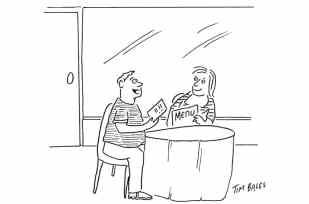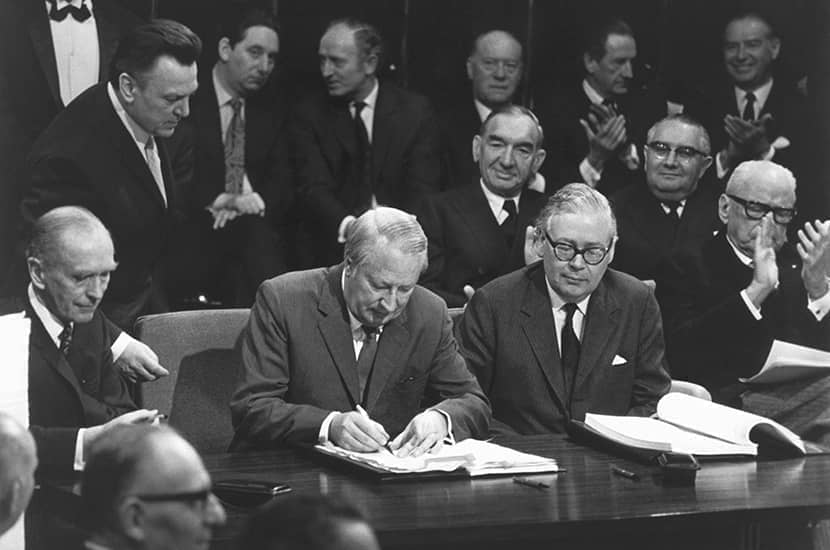Just as one is inclined to believe Carlyle’s point that the history of the world is but the biography of great men, so Christopher Tugendhat, in this level-headed account, is right to conclude that the history of the Conservative party in the past 60 or 70 years has been deeply affected by the biography of the movement for the European Union. And it would have shocked Carlyle that a great woman – Margaret Thatcher – played a central part and, according to Tugendhat, altered the course of the party’s relationship with Europe.
She was certainly central to the debate, not least because rather too many Conservatives felt she had died a martyr’s political death in 1990 when she was forced from Downing Street by people they regarded as treacherous pro-Europeans. They were determined to see that her sacrifice was not in vain. A quarter of a century later, they succeeded.
Tugendhat was himself a commissioner in Brussels, and makes no secret of his sadness that Britain has left the EU. But he is no vitriolic and sour remainer, refusing to accept the outcome of the largest democratic vote ever held in this country. He concludes by hoping for a fruitful relationship on an altered basis between Britain and the EU, something that may even be possible when the petulance and arrogance with which the EU, and some heads of government, regard any challenge to it dies down. But his book is especially valuable because he openly admits the mistakes that were made earlier on in this difficult history, and were made by those for whom the cause of Europe was everything.

Tugendhat’s key point is that Harold Macmillan, when seeking to secure agreement for Britain to enter in the early 1960s, ignored a crucial point made by his Lord Chancellor, Lord Kilmuir.







Comments
Join the debate for just £1 a month
Be part of the conversation with other Spectator readers by getting your first three months for £3.
UNLOCK ACCESS Just £1 a monthAlready a subscriber? Log in